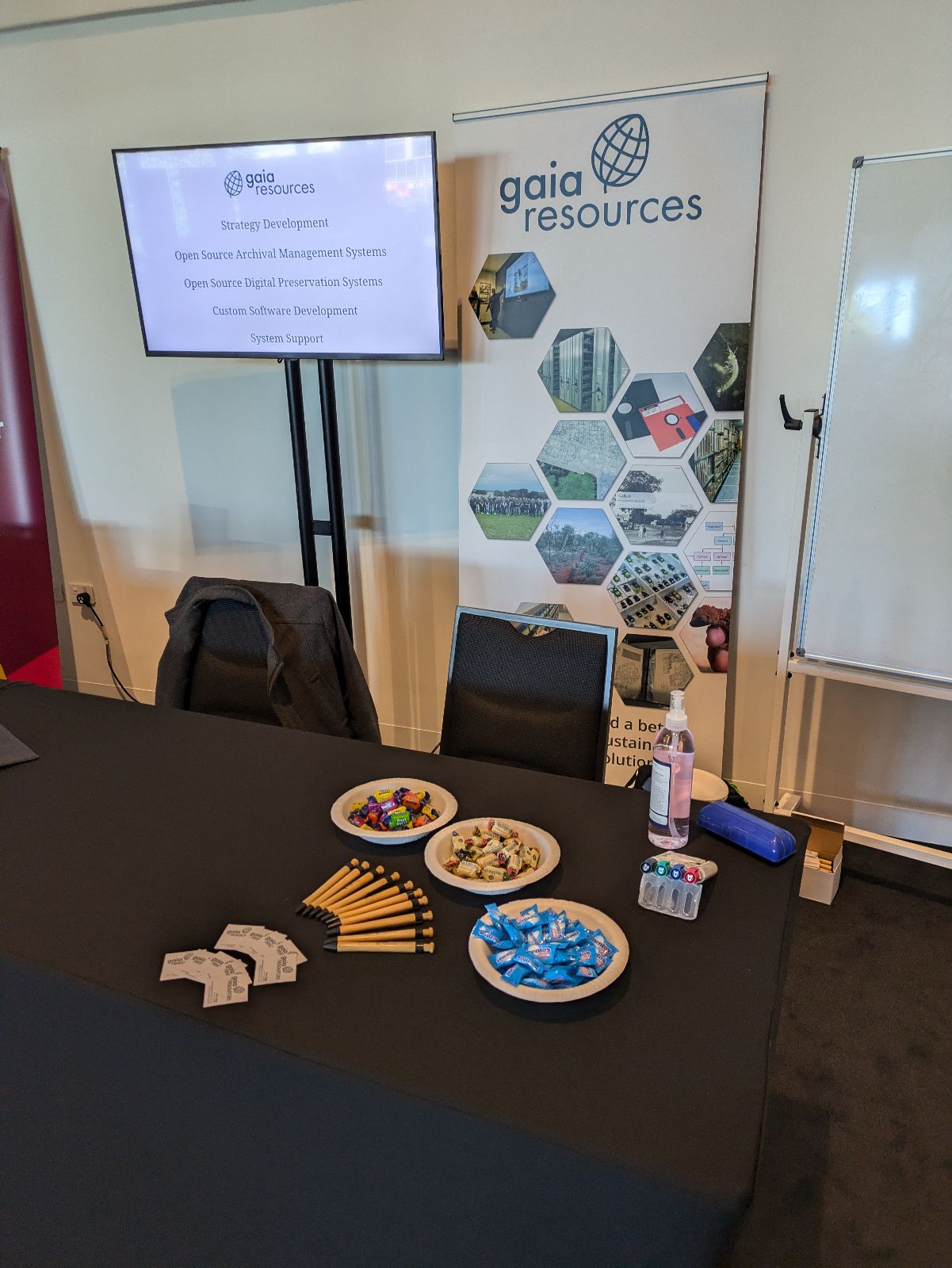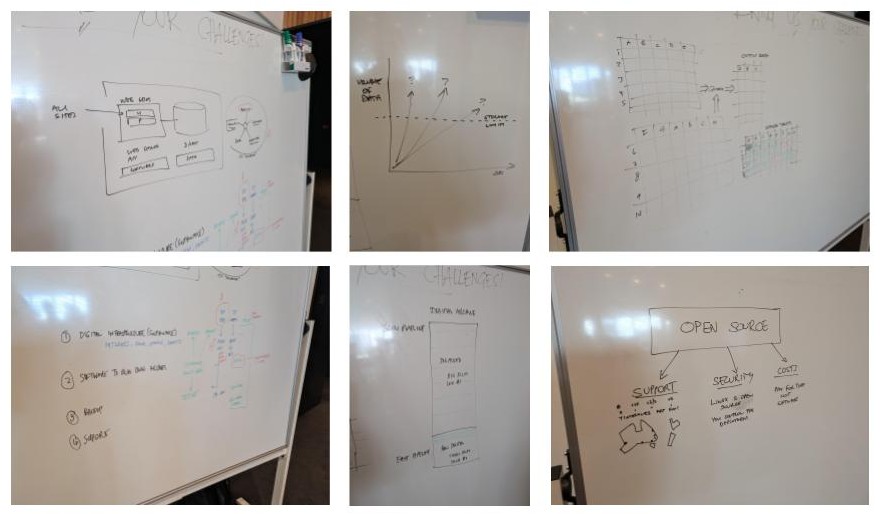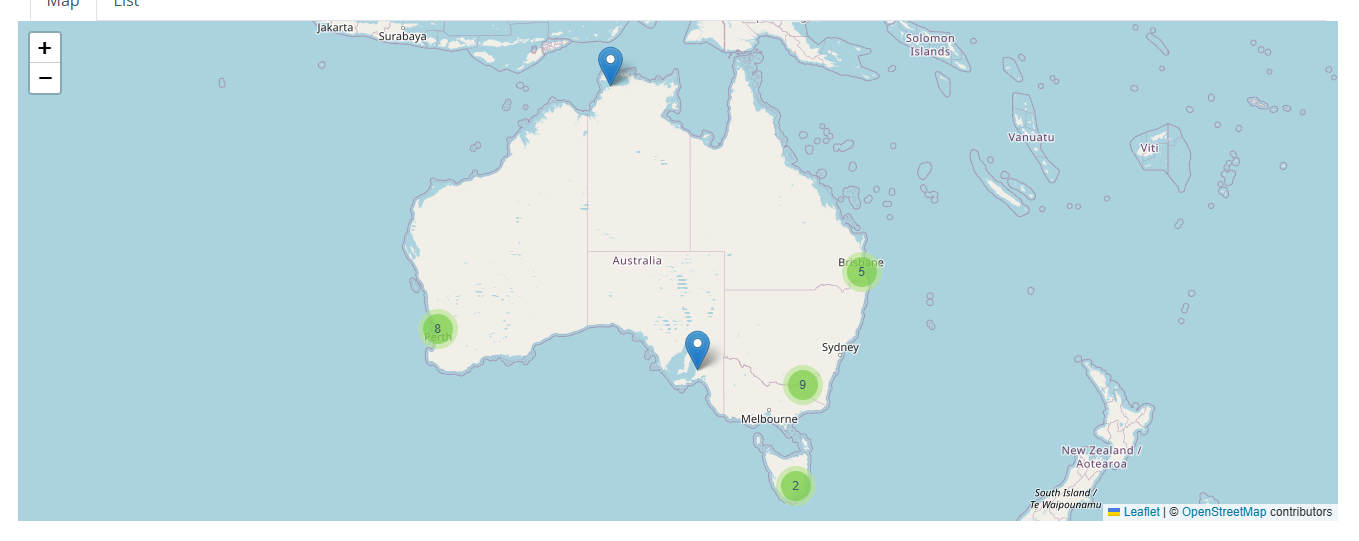The recent Opening the Archives (#ota2024) conference was on again this year, and was a joint conference between the Australian Society of Archivists (ASA), Archives & Records Association of NZ Te Huinga Mahara (ARANZ) and the Pacific Regional Branch of the International Council on Archives (PARBICA). Dura and I headed across to join the conference, which was in Christchurch.
Christchurch is a pretty town with a lot of history, much of which is tragic, but the city itself feels light, open and green. The people were friendly, the architecture very interesting and a mix of old and new - it was a great place to have this conference as the city itself lent to the energy of the event with a mix of consideration of the past and an emphasis on looking forward.
This year, Gaia Resources decided to try something a bit different. My first ASA conference was in 2016 in Parramatta, where my love of the archives profession really blossomed. We’ve been in attendance at a range of the conferences since then, either presenting papers, workshops or just attending to learn. So this year, and spurred on by the consistent “there aren’t any IT people here” that I kept hearing, we decided to sponsor the conference and have a stand.

My aim for the stand was to actually set up what is effectively a free technology advice stand, where I could be on call for people to come and ask questions. Since we don’t sell products at Gaia Resources, we don’t have a push to sell something - we’re really just selling time as a consultancy - so we thought this might be a good safe space for people to come and chat and find out what we think.
During the conference we covered a range of topics, including:
- How digital data volumes in the archives will increase over time,
- The challenges and approach to preserving born digital records versus digitised records,
- Migrating data from one system to another - and the sparse table problem,
- How to get started with an archival management system from scratch,
- Infrastructure needs and requirements for any distributed systems, and
- Digital embassy concepts to help support developing nations

There was another topic raised: that “open source is bad”. I was asked why we bother, and that it’s not secure software, and there’s no support, and the usual myths around open source. The proof of the value of open source software is in the pudding, though. At Gaia Resources we have implemented and continue to support three Australian state archives - along with many other smaller ones - using open source archival software, including AtoM, ArchivesSpace and CollectiveAccess. These projects debunk those myths, and show that this is moving in the right direction. In my opinion, open source software is a critical part of an archive meeting it’s statutory obligation - they have to preserve their archives forever, and being locked up in a closed source software package you can’t get out of easily is not the way to achieve that.

While I was at the stand, Dura was attending a range of conference talks, and it was fantastic to see her learning so much about archives, from not only the talks but the conversations she was having along the way. Dura is one of our project management team who runs the Queensland State Archives project supporting their systems, and she has learned much about archives since she started in that role - and the conference has helped and provided a lot more context and information about how archives work.
Dura - The conference highlighted for me the use of emerging technologies to support communities and intergenerational learnings, raising early stages awareness of archives and archives profession, the transition of societal attitude towards disability and the challenges of having a sustainable approach and maintenance model for archives. I really enjoyed gaining insights and experience shared by the speakers and attendees. It was also great to meet fellow attendees from a range of organisations. This experience has increased my appreciation of the value of archives and its importance to society and community. I am excited to see how we can build on this knowledge and contribute to the future of Gaia and our community.
There’s a lot of people to thank for organising the conference - there are staff, volunteers, program committees and our fellow sponsors - and all of them have contributed to give us an opportunity to learn and help solve some of the technology problems that archives face. So thank you to the team behind the scenes - and especially to all the people we met and gave us some challenges to work on as well. So thank you to everyone involved!
If you’re keen to talk to us about challenges you’re facing in technology, don’t wait a year to see us as the next conference - just give us a call +61 8 92277309, get in touch via email or start a conversation on LinkedIn, Facebook or Instagram.
Piers